Reducing, recycling, upcycling: how we put waste to work
Posted by Aiden McRae on
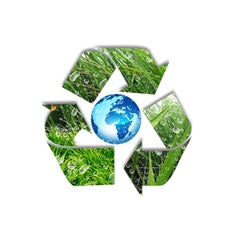
One of the joys of gardening is finding the best ways to harness the power of natural cycles flowing between water, sun, soil, plants and organic materials. The more these elements can work together, the more effective your growing projects become. At YukonGrow, we are always finding ways to reduce, recycle and upcycle materials for as long as possible. This powerful process is known as closing the loop, meaning that we continuously reuse materials within our system, rather than losing valuable resources and energy.
The power of local
It’s especially important in the North to shop local, find opportunities to reduce costs, resources and greenhouse gas emissions (GHG) related to transporting goods. Shopping locally for products made from locally-sourced materials like compost and woodchips has a much lower environmental impact than shopping at big box stores for products trucked up from down South. This philosophy guides how we work with materials at YukonGrow.
Our team is passionate about putting waste to work at every opportunity. When you purchase YukonGrow products, you are choosing to reduce, upcycle and contribute to a circular economy right here in the Yukon. Above all, we want to empower you to grow your own food, which is one of the best ways to reduce our environmental footprint, while enhancing food security.
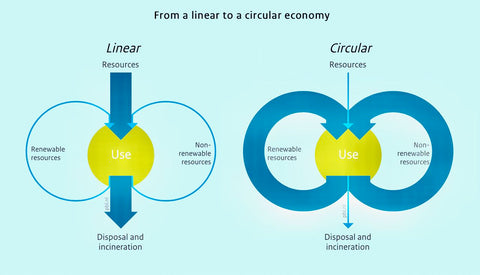
How we create value from waste
If you’ve ever purchased soil from us, you know that we keep it simple, and we love it that way!
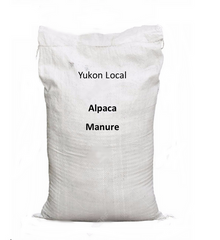 When you buy a 20L bag of soil, it comes packaged in an upcycled grain bag. The bags are tough, sturdy and clean. And you can use them again, or return them to us! They are often upcycled feed bags from local farmers when available, which displaces the need for new ones.
When you buy a 20L bag of soil, it comes packaged in an upcycled grain bag. The bags are tough, sturdy and clean. And you can use them again, or return them to us! They are often upcycled feed bags from local farmers when available, which displaces the need for new ones.
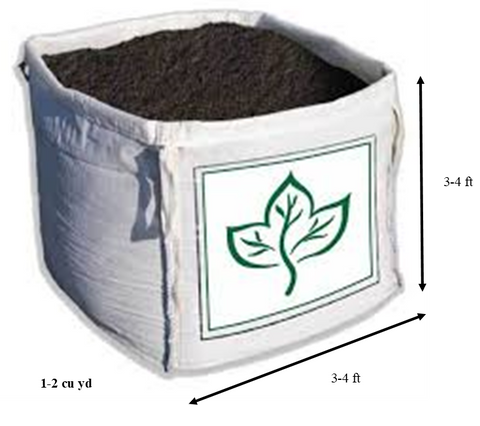
If you’re looking for a lot of material, we deliver 1 cu yard (765L) of soil in a superbag. We also re-use these bags again and again until they are worn out.
The soil itself is also filled with valuable waste that will boost your growing potential.
Compost and manure will enhance the health and productivity of soil. We incorporate City of Whitehorse compost into many of our soil blends. Manures can also be a great nutrient-rich material to give your growing projects a boost. We work with local sources, which saves on cost and emissions to transport sources from out of territory. You can also compost at home and add it to your soil as needed!
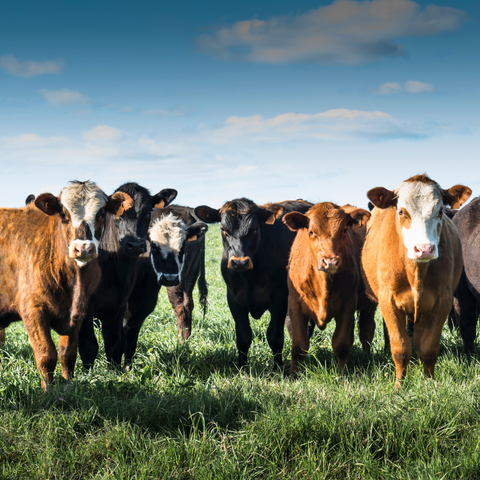
Biochar (biological charcoal) is a stable organic material that has been used for thousands of years, and has been studied thoroughly for its powerful benefits for agriculture and carbon capture.
Our specialty soil blends are based on inoculated and charged up biochar to boost your growing projects from the get-go.
We source high quality biochar made from upcycled forest management activities in Western Canada, and we also strive to someday capture the potential of local woody waste into local biochar.
We even work with local agribusinesses, to recycle their ‘’waste’’. We pick up ColdAcre’s spent grow media and are looking into repurposing it into new blends of soil. We’re always open to suggestions and opportunities to partner with other businesses to upcycle fish offals, bones, oysters, or spent brewery grain into soil amendments.
Finish off your growing projects with wood chips
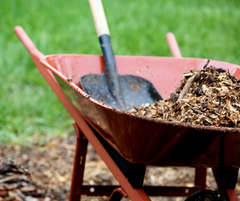 Made from residues of tree branches and whole trees, woodchip mulch is a beautiful finishing touch to many growing projects. Adding mulch to the surface of garden beds and around trees or shrubs, such as raspberries, haskap, or perennials helps to conserve water, control weeds, prevent compaction from rain, and moderate soil temperatures.
Made from residues of tree branches and whole trees, woodchip mulch is a beautiful finishing touch to many growing projects. Adding mulch to the surface of garden beds and around trees or shrubs, such as raspberries, haskap, or perennials helps to conserve water, control weeds, prevent compaction from rain, and moderate soil temperatures.
The opportunities to harness valuable materials are everywhere. We hope we’ve inspired you to look for ways to recycle and upcycle within your own day to day growing systems.
What are your tips and tricks to put waste to work? Leave us a comment!
Photos: Aiden McRae / YukonGrow / Shutterstock / Canva / PBL Netherlands Environmental Assessment Agency
Share this post
- Tags: regenerative agriculture

